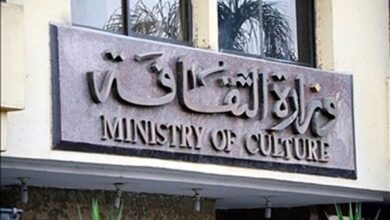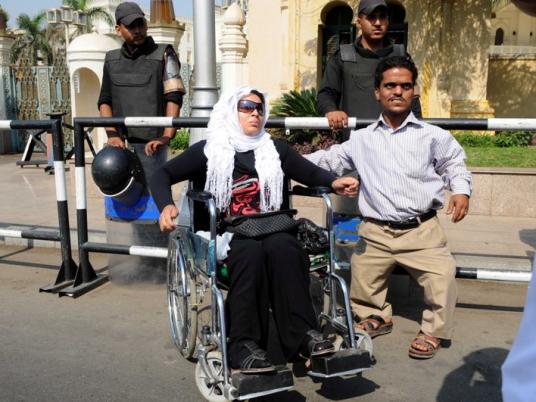The first Luxor Egyptian and European Film Festival opens tonight in the esplanade of the magnificent Karnak Temple, showcasing 64 films from 21 European countries and Egypt. Arab cinema historian and critic Magda Wassef — who is heading the festival this year — hopes, along with the organizing nonprofit Noon Organization for Culture and Arts, to bring European cinema to Upper Egypt, where very few movie theaters are available and most of them screen Egyptian and American productions.
Her endeavors, however, have not been without challenges.
Only a few weeks before the festival’s launch, the Culture Ministry announced that it would only pay one-third of the agreed-upon funding to Noon, jeopardizing much of the organizers’ plan. Culture Minister Saber Arab justified the decision by citing the limited resources available to the ministry after its separation from the Antiquities Ministry last year. In the end, Noon was partly compensated with access to use the state’s cultural palaces and other venues for screenings, as well as contributions to printing costs of publicity materials.
But the Luxor festival is not the only one that has been recently facing problems. Owing to continuous criticism of the country’s major festivals in Cairo, Alexandria and Ismailia, which have been monopolized in terms of organization by a few foundations and the ministry, a new board was assigned at the National Cinema Center last March to introduce reforms to the system.
The plan envisioned non-governmental organizations and foundations being selected based on merit to organize festivals, with the Culture Ministry providing support by partially funding the events. The board dissolved the Higher Committee of Festivals and drafted selection criteria for organizing NGOs and an evaluation system to improve selection in years that followed.
Former Culture Minister Emad Abu Ghazi approved the board’s plan and issued a decree with it, bringing things into motion and encouraging more grassroots organizations to take part. But after the board quit the National Cinema Center, the plan did not follow through.
“The [following] ministers ignored our efforts,” says filmmaker Ahmed Abdallah, who was on the board of the National Cinema Center. “We formed a committee to study the criteria of choosing the NGOs that organize the festivals, and finally issued a decision signed by Emad Abu Ghazi. I don’t think that someone needs a guarantee more than this.”
But several issues arose, uncovering loopholes in the system. One of them is that Abu Ghazi’s decision was not binding to the ministry, meaning it could be easily retracted by following ministers.
“No [real] mechanism was put in place to implement the decision,” Wassef tells Egypt Independent. “Instead, it was left to the discretion of the minister in office at the time of the festival. Arab’s vision [for festivals] differed from that of Abu Ghazi.”
Wassef and the Noon Foundation submitted a proposal in a competition last year to organize a festival in Luxor. They were selected by the jury and a budget was approved, whereby the Culture Ministry agreed to fund half of the festival’s costs, Wassef says. So organizers were surprised when the recent decision to reduce the ministry’s contribution by two-thirds was announced.
“We will have our festival with fewer guests. But we will keep our main films and events like we planned,” says Wassef. However, that does not refute that “the state should have respected its word. We worked based on that.”
The first Luxor Egyptian and European Film Festival runs until 22 September.




